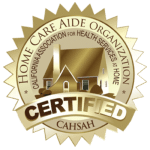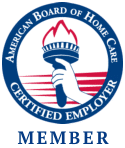Ingrid was definitely concerned with the way her elderly father was feeling lately. Over the last few weeks, he complained of an upset stomach after almost every meal and his gastrointestinal distress was increasing. His home care aides were also noting that he seemed to be suffering with tummy trouble. Over the counter remedies were not easing his condition, so Ingrid scheduled a doctor’s visit.
After listening to the symptoms and running a few blood tests, the physician felt confident that Ingrid’s father had celiac disease. Ingrid was surprised, knowing that celiac disease had something to do with wheat and her father had enjoyed wheat-based foods for years, including beer and bread. The physician explained that seniors could indeed develop celiac disease in later years. Ingrid and her father then began to educate themselves on celiac disease in seniors.
Home Care in Newport Beach CA: Seniors and Celiac DiseaseWhen most elderly people and their family members hear a diagnosis of celiac disease, their first reaction is often surprise. That’s because there isn’t much that is known about the onset of celiac disease in later years, as most research has been done on children. However, a growing awareness of celiac disease in seniors is making this frequently undiagnosed disease more recognized by family members, home care aides, and even doctors.
What is Celiac Disease?
Celiac disease is an autoimmune condition that causes the body to react when it ingests gluten, a protein found in certain grains like wheat. When someone with celiac disease eats gluten, the body reacts aggressively. The reaction creates damage to the walls of the small intestine and causes gastrointestinal distress. Continuous attacks interfere with the small intestine’s ability to absorb nutrients. This can lead to long-term health issues that can be especially serious for the elderly.
Symptoms of Celiac Disease.
The main symptoms of celiac disease are abdominal discomfort, bloating, gas, nausea, constipation, diarrhea and vomiting. Weight loss is quite common as well. The tricky part about diagnosing seniors with celiac disease is that the typical intestinal distress often doesn’t show up in seniors. In other words, they may only show mild or no typical symptoms, which is known as silent celiac disease. Family caregivers, family members, home care aides and others may just think that the elderly person is having some minor food issues and not something as serious as celiac disease.
There are several other symptoms of celiac disease that are not as common, but may clue in family caregivers that something isn’t right with their elderly loved one. These symptoms include heartburn, headaches, fatigue, aching joints, skin rashes and malnutrition. If celiac disease in seniors is not treated, it can affect their long-term health with nutritional deficiencies, problems with other organs, osteoporosis, anemia, lymphoma, epilepsy, dementia, and neuropathy. That’s why it is so important for the elderly to get the proper diagnosis when celiac disease is the root of their health problems.
Treating celiac disease is both simple and difficult. Symptoms can disappear entirely when the elderly person embarks on a gluten-free diet. Without gluten in the body, it doesn’t attack the small intestine and inflammations in that area go down significantly. However, following a gluten-free diet can be frustrating for seniors that have spent a lifetime enjoying wheat-based food. However, the positive health effects of properly managing celiac disease are much more desirable than the pain and suffering of a flair-up.
If you or an aging loved one are considering home care in Newport Beach, CA, please contact the caring staff at Canaan Home Care today! 1-844-CANAAN-1 (1-844-226-2261)
Source:
https://www.ncbi.nlm.nih.gov/pmc/articles/PMC3227015/
- Follow These Four Steps and Create a Respite Plan - December 18, 2020
- End of the Year Holidays Can Cause Aging Veterans to Feel Lonely, but What About Home Care? - December 11, 2020
- Is Your Senior Battling Edema in Her Legs? - December 3, 2020




